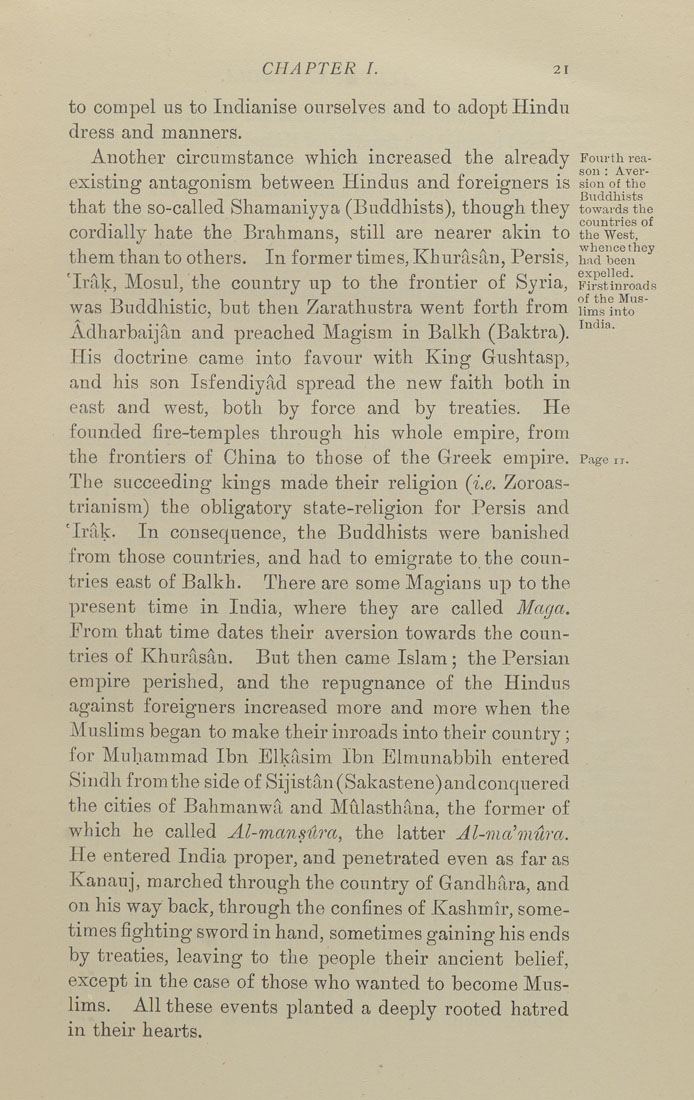Bīrūnī, Muḥammad ibn Aḥmad, Alberuni's India (v. 1)
(London : Kegan Paul, Trench, Trübner & Co., 1910.)
|
||
|
|
|
|
| Page 21 |

CHAPTER I. 21 to compel us to Indianise ourselves and to adopt Hindu dress and manners. Another circumstance which increased the already Fourth rea- , . . _ , „ . . sou : Aver- existmg antagonism between Hindus and foreigners is sion of the that the so-called Shamaniyya (Buddhists), though they towards the cordially hate the Brahmans, still are nearer akin to the west, them than to others. In former times, Khurasan, Persis, hlxd°heen^°^ 'Irak, Mosul, the country up to the frontier of Syria, pfrrtinroads was Buddhistic, but then Zarathustra went forth from iimsint"^ Adharbaijan and preached Magism in Balkh (Baktra). His doctrine came into favour with King Gushtasp, and his son Isfendiyad spread the new faith both in east and west, both by force and by treaties. He founded fire-temples through his whole empire, from the frontiers of China to those of the Greek empire. Page u. The succeeding kings made their religion (i.e. Zoroas- trianism) the obligatory state-religion for Persis and 'Irak. In consequence, the Buddhists were banished from those countries, and had to emigrate to the coun¬ tries east of Balkh. There are some Magians np to the present time in India, where they are called Maga. From that time dates their aversion towards the coun¬ tries of Khurasan. But then came Islam; the Persian empire perished, and the repugnance of the Hindus against foreigners increased more and more when the Muslims began to make their inroads into their country; for Muhammad Ibn Elkasim Ibn Elmunabbih entered Sindh from the side of Sijistan(Sakastene)andconquered the cities of Bahmanwa and Mulasthana, the former of which he called Al-mansitra, the latter Al-mct'mtlra. He entered India proper, and penetrated even as far as Kanauj, marched through the country of Gandhara, and on his way back, through the confines of Kashmir, some¬ times fighting sword in hand, sometimes gaining his ends by treaties, leaving to the people their ancient belief, except in the case of those who wanted to become Mus¬ lims. All these events planted a deeply rooted hatred in their hearts. |
| Page 21 |







